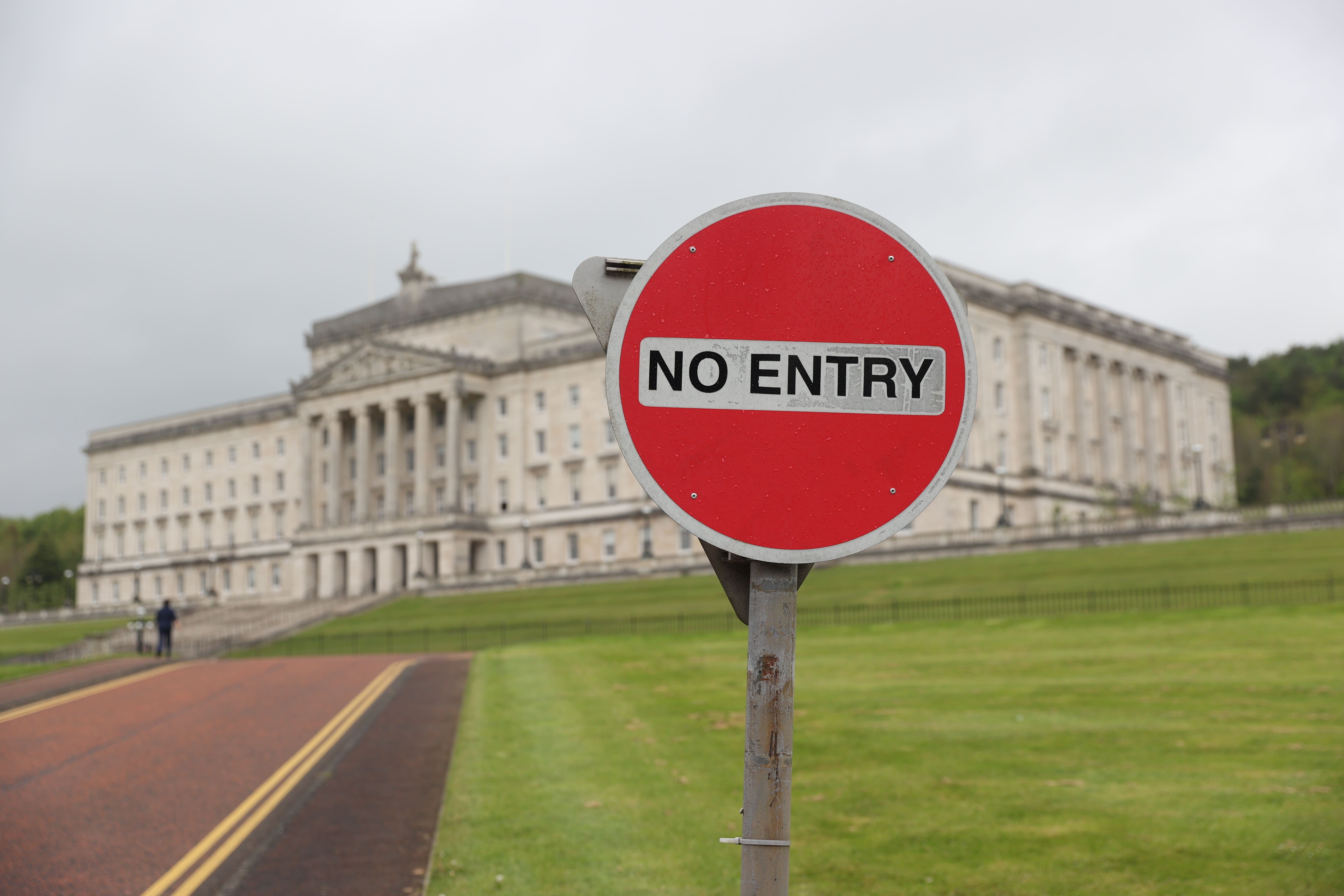In Pictures: Stormont still suspended as Northern Ireland sees year of changes
Amid political deadlock, the country has seen pro-Irish unity party Sinn Fein become the largest at Stormont.

Your support helps us to tell the story
From reproductive rights to climate change to Big Tech, The Independent is on the ground when the story is developing. Whether it's investigating the financials of Elon Musk's pro-Trump PAC or producing our latest documentary, 'The A Word', which shines a light on the American women fighting for reproductive rights, we know how important it is to parse out the facts from the messaging.
At such a critical moment in US history, we need reporters on the ground. Your donation allows us to keep sending journalists to speak to both sides of the story.
The Independent is trusted by Americans across the entire political spectrum. And unlike many other quality news outlets, we choose not to lock Americans out of our reporting and analysis with paywalls. We believe quality journalism should be available to everyone, paid for by those who can afford it.
Your support makes all the difference.Northern Ireland remains politically deadlocked in a year of change, with no executive formed at Stormont and Michelle O’Neill still unable to take the office of first minister after her Sinn Fein party finished first in May elections.
Loyalist opposition to the Northern Ireland Protocol has prevented the formation of a new administration, with Northern Ireland Secretary Chris Heaton-Harris expected to formalise a new election next year.
Ms O’Neill, whose party is the first pro-Irish unity to win a poll north of the border since partition, offered condolences to the King following the death of his mother, Queen Elizabeth II, while Northern Ireland also lost other significant figures including Nobel laureate David Trimble and Baroness May Blood.
A more normal life was beckoning for Northern Ireland with Robin Swann having lifted Covid restrictions but May elections brought a political breakthrough with Ms O’Neill set to become first minister after her party’s win.
However, that scenario was prevented by the lack of co-operation from the DUP over its opposition to Brexit trading arrangements.
Lord Trimble’s death marked the passing of an era as he was remembered for his role in forging peace but the death of Queen Elizabeth II saw the late monarch receive tributes from Sinn Fein figures who are implacably opposed to the UK monarchy.
The end of the late Queen’s reign was marked by civility from even those parts of the community opposed to the British presence in Northern Ireland.
Getting the political institutions up and running again will be the challenge for 2023 at a time where support for Sinn Fein is at an all-time high and as the UK moves on from a historic reign that began long before the Troubles.